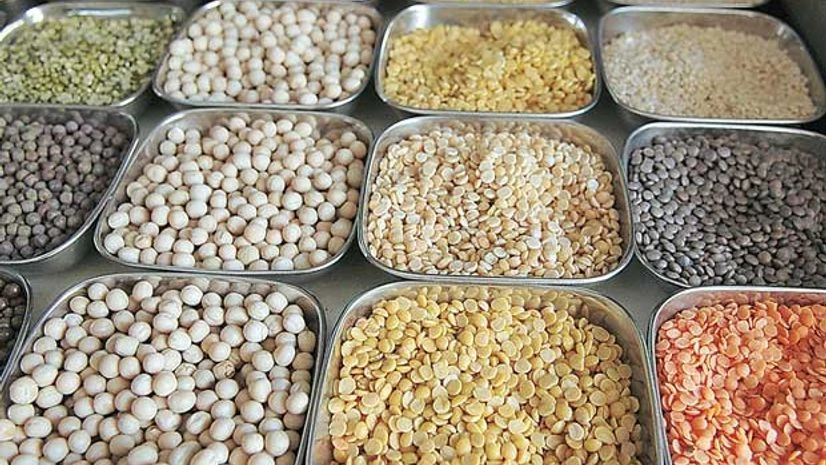Union Food Minister Ram Vilas Paswan has directed state governments, traders and importers to bring down the wholesale prices of pulses below Rs 100 a kg this festive season.
According to trade sources, pulses led by tur and urad are selling at Rs 105-110 a kg across the country. Chana and moong are traded below Rs 100 a kg. Pulses hit Rs 200 a kg early this year on reduced supply following two consecutive years of deficient monsoon rainfall.
In a meeting with state secretaries last week, Paswan directed millers and importers to ensure pulses were sold below Rs 100 a kg and directed the secretaries to conduct raids on hoarders. The minister also asked importers why they were importing less when the demand for pulses was high.
“The minister directed us to bring down prices below Rs 100 a kg,” said Bimal Kothari, vice-chairman of the India Pulses and Grain Association (IPGA).
The minister asked traders to importing more pulses. India has contracted for 2.5-3 million tonnes of yellow peas, tur, urad and chana to be delivered between October and January.
“Prices are hovering over Rs 100 a kg in the wholesale market, which will come down with import shipments and a better harvest. Pulses prices have declined 25-30 per cent over the last two months. Importers have bought a huge quantity at higher prices, resulting in an estimated Rs 1,500 crore loss,” said Kothari.
“India imported the highest ever quantity of 5.8 million tonnes of pulses last year. The world market is facing a deficit of tur and urad, there is no question of importing more. We explained this to the minister,” Kothari added.
Pulses production in 2016-17 is expected to be at an all-time high of 22 million tonnes on record kharif sowing. Production fell to 16.47 million tonnes in 2015-16 and 17.15 million tonnes in 2014-15. The highest production of pulses in India was 19.25 million tonnes in 2013-14.
According to trade sources, pulses led by tur and urad are selling at Rs 105-110 a kg across the country. Chana and moong are traded below Rs 100 a kg. Pulses hit Rs 200 a kg early this year on reduced supply following two consecutive years of deficient monsoon rainfall.
In a meeting with state secretaries last week, Paswan directed millers and importers to ensure pulses were sold below Rs 100 a kg and directed the secretaries to conduct raids on hoarders. The minister also asked importers why they were importing less when the demand for pulses was high.
“The minister directed us to bring down prices below Rs 100 a kg,” said Bimal Kothari, vice-chairman of the India Pulses and Grain Association (IPGA).
The minister asked traders to importing more pulses. India has contracted for 2.5-3 million tonnes of yellow peas, tur, urad and chana to be delivered between October and January.
“Prices are hovering over Rs 100 a kg in the wholesale market, which will come down with import shipments and a better harvest. Pulses prices have declined 25-30 per cent over the last two months. Importers have bought a huge quantity at higher prices, resulting in an estimated Rs 1,500 crore loss,” said Kothari.
“India imported the highest ever quantity of 5.8 million tonnes of pulses last year. The world market is facing a deficit of tur and urad, there is no question of importing more. We explained this to the minister,” Kothari added.
Pulses production in 2016-17 is expected to be at an all-time high of 22 million tonnes on record kharif sowing. Production fell to 16.47 million tonnes in 2015-16 and 17.15 million tonnes in 2014-15. The highest production of pulses in India was 19.25 million tonnes in 2013-14.

)
